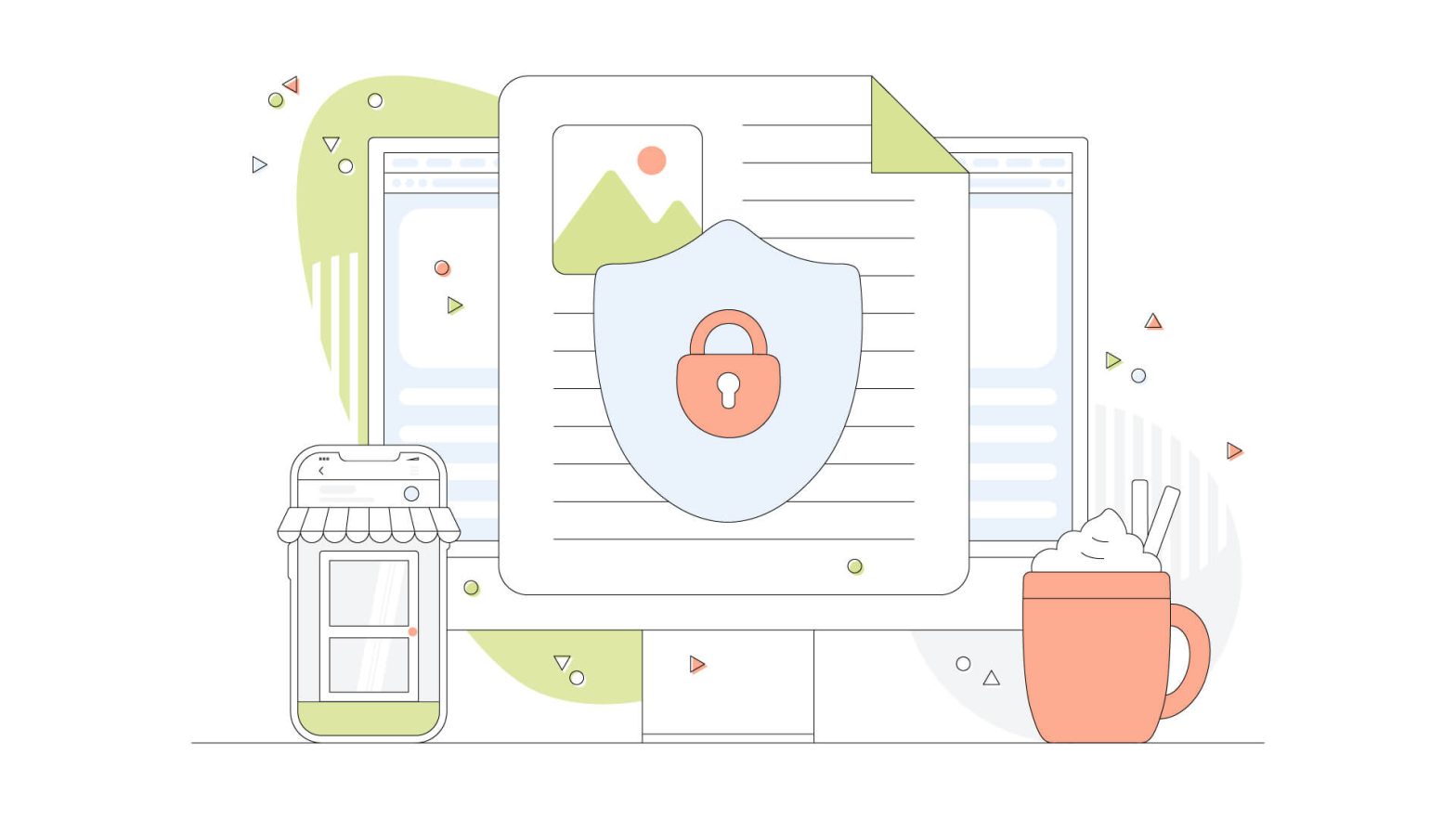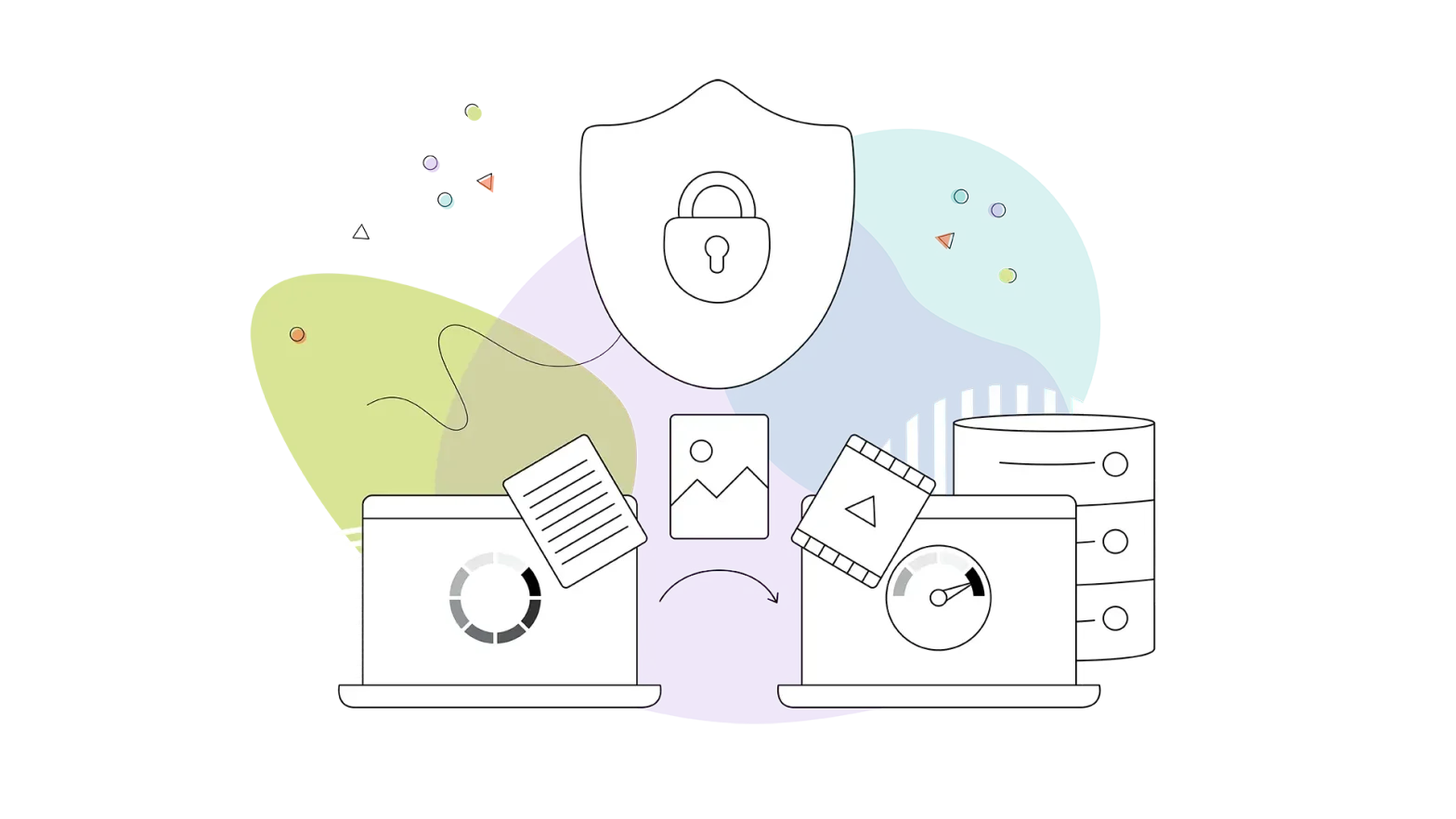Privacy and security can’t be guaranteed by every device around you or an app on your smartphone. You have to try to protect your personal privacy by locking down the data that belongs to you for more complete data security.
It’s a fact that business websites, eCommerce stores, and apps (and the list goes on), constantly monitor user behaviour to improve their conversion rates. This data collection is usually transparent once you visit the site via a pop-up.
Even if transparency is on point, it’s crucial to make your devices work in your favour and strengthen your data privacy, a subject which is now a major concern.
The fact that 71% of global adults have already taken steps to improve their online data privacy reveals how important it has become in recent years.
When we look closer at these statistics from Norton, we see all the measures these people have taken to protect what’s rightfully theirs – their data privacy.
In this blog, we’ll explore the data privacy topic and tell you how it can protect your small business.
- What Data Do Websites Collect? And a Cookie Check
- What Is Data Privacy?
- The Benefits of Data Privacy for Small Businesses
- How to Implement Data Privacy in Your Small Business
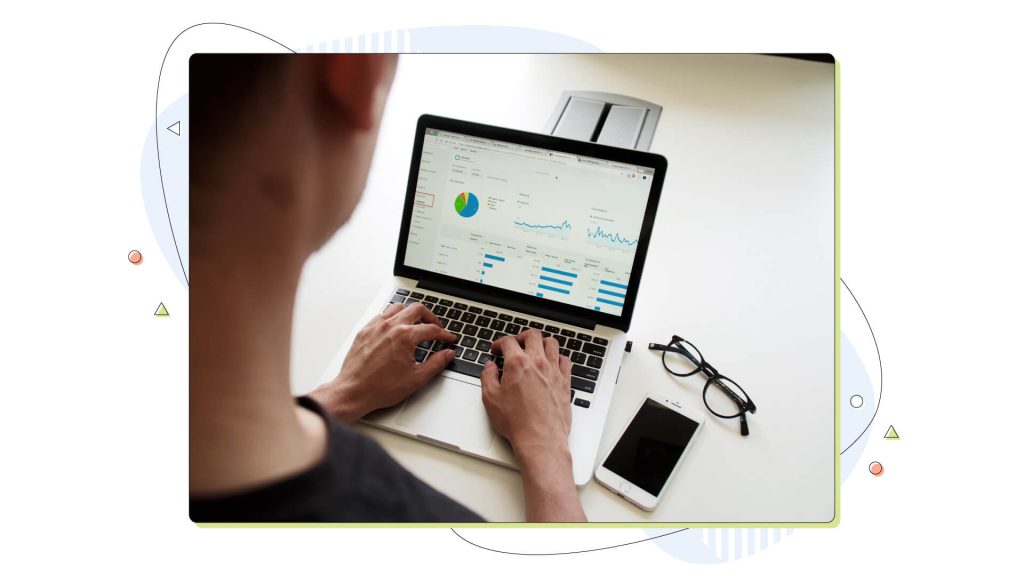
What Data Do Websites Collect? And a Cookie Check
Before we continue with our article, let’s take a step back and focus on the root of our subject. What data do websites collect? And how can we check?
For years, businesses and websites have been collecting and using consumer data without always providing adequate security measures for storing said data. Many websites track user behaviour through tools like Google Analytics, including time spent on pages, scrolling, and bounce rates.
Without proper data protection, data privacy is at risk, and a data breach could cause severe damage to your business and your clients.
To check what data a website tracks, you can check its cookies by clicking the small lock icon on the left of the address bar and clicking “Cookies and site data.”
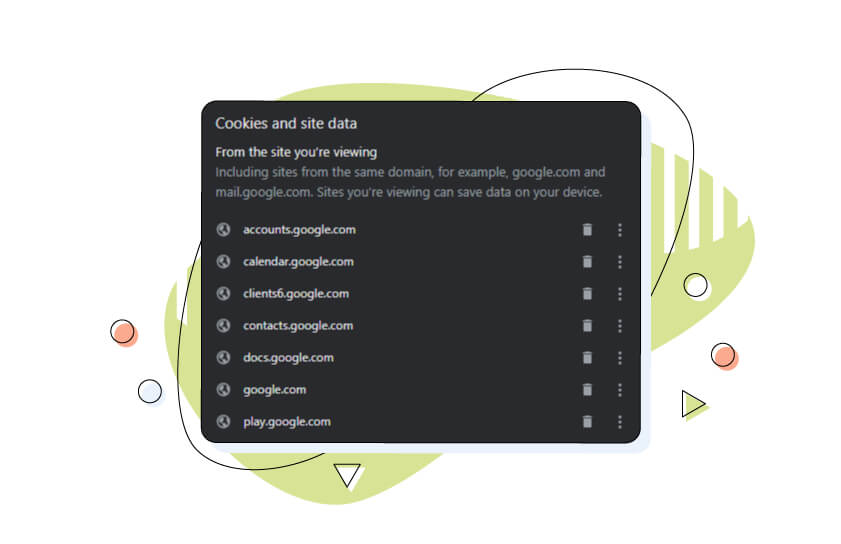
This will reveal all the third-party cookies and services deployed on your browser. By deleting any of these cookies, your browser will ask you to reload the page.
When browsing different websites, you may find some cookies unnecessary or wish to avoid being tracked. To prevent these cookies from being saved, simply click on the three dots located on the right-hand side and choose the option “Don’t allow to save data.”
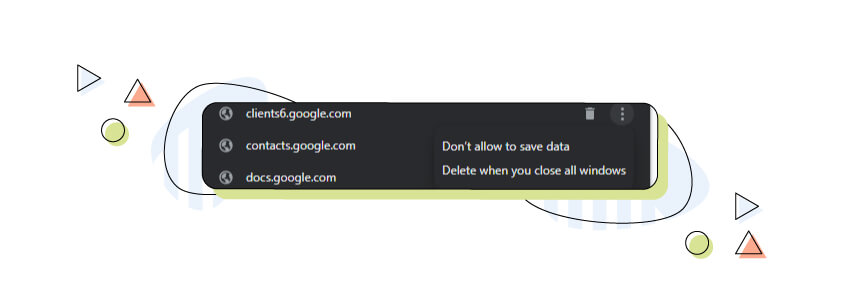
What Is Data Privacy?
With all the technology surrounding us in our daily lives, the concept of data privacy has never been more important. But what exactly is data privacy, and why does it matter to you and your small business?
At its core, data privacy is the safeguarding of personal information. It’s ensuring your sensitive data won’t fall into the wrong hands.
This data can include your own or your customers’ names, addresses, phone numbers, financial details, and more. Essentially, it’s the equivalent of locking your front door to keep intruders out.
Why Data Privacy Matters to You
Now, let’s make it personal. Think about the last time you shared your credit card information to make an online purchase or entered your address for home delivery.
All that information you provided is your personal data, and it’s valuable.
Data privacy is like having a sturdy lock on the door to your data – it ensures that your personal information is safe and sound. When referring to your business, this fosters trust and loyalty from your customers.

Data Privacy For Your Customers
Data privacy isn’t just about good business sense; it’s also a matter of law and ethics.
Data protection laws like the General Data Protection Regulation (GDPR) and the California Consumer Privacy Act (CCPA) set the rules for how businesses handle personal data.
Complying isn’t just about avoiding fines – it’s about doing right by your customers and respecting their privacy. It’s not an abstract concept reserved for tech wizards and cybersecurity experts. It’s a fundamental idea that every small business owner should embrace.
The Benefits of Data Privacy for Small Businesses
Think of data privacy as a multi-faceted gem that brings numerous advantages to the table. Showing empathy toward customers helps them return to your business and creates a sense of loyalty. Caring about their data protection and data privacy also makes them feel safe while navigating your digital product pages.
The same happens when you offer exceptional customer service. Great customer service is important in building customer trust and demonstrates that the business isn’t just there for the profits!
Here are the top five benefits that should excite every small business owner.
1. Building Trust: Cementing Customer Loyalty
In the business world, trust is gold. When your customers know that their personal information is handled with care and respect, it builds a strong foundation of trust.
Be transparent about what you’re monitoring. GDPR and CCPA banners in Europe and the USA, respectively, are put in place to let users know what information they want to share with the company and website.
These measures make them more likely to return for repeat business and recommend your services to others. It’s like a warm handshake, sealing the deal of loyalty.

2. Legal Compliance: Steer Clear of Legal Troubles
Data privacy regulations shouldn’t be taken lightly.
As mentioned above, compliance with laws like GDPR and CCPA isn’t just a “nice-to-have.” It’s a must-have. Failing to comply can lead to hefty fines and a tarnished reputation.
Prioritizing data privacy and safeguarding all sensitive data ensures you’re on the right side of the law, giving you peace of mind and keeping your business out of legal hot water.
Always follow the data privacy laws in your country. Consult a legal specialist for the latest rules before making changes to your website.
3. Reputation Management: A Beacon for More Customers
Your reputation is your business’s most valuable asset. Word travels fast online, and a good data privacy reputation can be a powerful magnet for customers.
When people know you’re committed to protecting their information, they’ll likely choose your services over less conscientious competitors.
Again, the magic words here are to be transparent about your business policies.
4. Security Against Data Breaches: Shielding Your Business
Data breaches are the stuff of nightmares for businesses. Apple’s iCloud hack in 2014 and 2020 was a prime example that not even a trillion-dollar company can be 100% safeguarded from attacks.
Data breaches can lead to financial losses and irreparable damage to your brand. Data privacy measures act as a formidable shield against cyber threats.
Not only does it protect your customers, but it also safeguards your business from the devastating consequences of a breach.
5. Competitive Advantage: Rising Above the Rest
In a crowded marketplace, setting your business apart is vital. Committing to data privacy can be your unique selling proposition (USP).
It’s a statement to your customers that you’re dedicated to their well-being, going above and beyond to secure their data. In an era where privacy concerns are growing, this commitment can give you a competitive edge, especially over other small businesses in your local area.
Imagine data privacy as the secret ingredient in a recipe that makes your business stand out in the best possible way. It’s not just about compliance; it’s about creating a business culture that respects and protects the data entrusted to you. As we move forward, we’ll explore practical steps to effectively implement data privacy in your small business.
How to Implement Data Privacy in Your Small Business
Rolling up your sleeves to make your business as safe as a fort can make for a significant strategy.
But you have to start somewhere, don’t you? Here are a few practical steps to apply data privacy and learn how to protect your customers’ data – and your own.
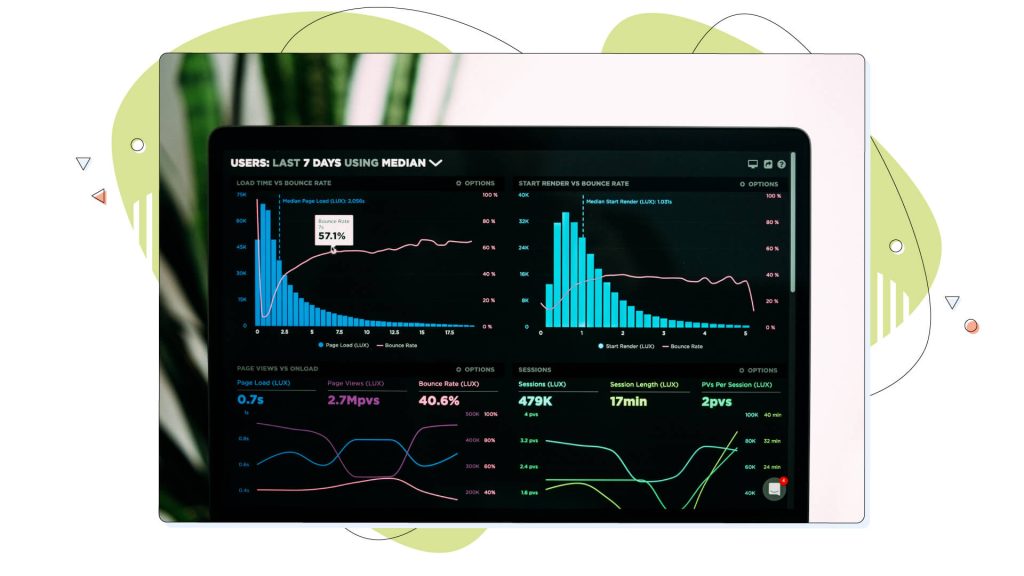
1. Data Inventory: Know What You Hold
Before moving on, you need to know what kind of data you collect in the first place.
The process is called data inventory – just as you were a storage facility. This means identifying potentially sensitive data you collect and store, whether it’s customer names, contact details, or past transactions.
After reviewing your sources, you can determine which of those are trustworthy and worth keeping and highlight the rest to your visitors. This way, transparency works its magic and increases your credibility with your audience.
For example, consider consolidating your analytics platforms. There’s no need to simultaneously have Microsoft Clarity and Hotjar for heatmap monitoring. On the other hand, Google isn’t your only option. On our blog, you can find a complete list of Google Analytics alternatives for your website.
You can solely rely on Microsoft Clarity for heatmaps and/or analytics. Instead, you can use Google Analytics and the powerful heatmaps from Hotjar as a wireframe for success.
2. Control Who Has Access
Not everyone in your small business needs access to all your data. This is an essential measure for all types of businesses, whether it refers to analytics access or certain parts of the website.
When working with WordPress, you can change the permission from the Users menu from the dashboard.
Implement strict access controls to limit who can view and modify sensitive information. Only authorized personnel should have access; even then, it should be on a need-to-know basis. It’s like giving keys to the business only to those who really need them.
3. Encryption: The Digital Fort Knox
Encryption is your digital Fort Knox. Even if unauthorized individuals gain access to your data, they won’t be able to decipher it.
For that purpose, password managers come to the rescue. Creating a strong password and saving it in an encrypted vault is an additional but highly recommended step. In many circumstances, encrypting passwords is a free process that can be done with tools like KeePass.
Invest in encryption tools and techniques to protect your data both in transit (when it’s being sent) and at rest (when it’s stored on servers or devices).
4. Employee Training: Data Guardians
Let’s not forget the elephant in the room. Your employees are on the front lines of data privacy.
Train them to be data guardians. Use training sessions or free educational material.
Educate them on the importance of data privacy, the risks of data breaches, and how to handle data securely. Regular training sessions keep your team vigilant and informed, turning them into a crucial line of defence.
Also, ensure you have policies in place to keep sensitive customer data safe. Customers should never share their passwords or PIN codes; your employees should never ask for them.

So, in short:
- Have training sessions with your employees about cybersecurity
- Ensure you have security policies in place
- Require backups, automatically or manually, for their computers
- In case of remote work, use VPNs and/or more secured logins
5. Compliance with Local Regulations
Last but not least is complying with local law. For your small business to remain compliant, stay up-to-date with the latest regulations, especially if you operate across borders.
Compliance is about respecting the rights and privacy of your customers.
Implementing these steps may require time and effort, but the peace of mind and trust you’ll build with your customers are well worth it.
Conclusion
We’re almost at the end, and it’s crucial to remember that safeguarding data privacy is fundamental to your business’ success.
The benefits of starting your small business with transparency over security matters will be valued by your customers, allowing you to become trusted.
We have summarized the key points of prioritizing data privacy and protection and what benefits it can bring to your small business:
- Builds trust: Boosts customer loyalty, solidifying your brand’s reputation.
- Ensures legal compliance: Keeping customer data and business data safe keeps you on the good side of the law.
- Helps your reputation: All your efforts won’t go unnoticed. Focusing on data privacy with clear messaging on your website will make visitors feel safe when browsing.
- Safeguard against data breaches: Protect your business from devastating cyber threats and their consequences. Use encryption and offsite backups. We recommend having automated backups for your web hosting plan as well.
- Gain a competitive advantage: Set your small business apart in a competitive marketplace.
All that, though, has to have a great basis, and it can’t be done without an outstanding web hosting solution.
Small businesses might find shared hosting to be the perfect option. Growing businesses will see Managed WordPress or VPS hosting solutions appearing in their horizons as even better plans.
Regardless of the perfect plan for you, it’s crucial to pick a reliable web hosting provider because it can help provide a secure and complete web hosting experience from all angles.
Discover more awe-inspiring topics like this by visiting our HostPapa Blog.
